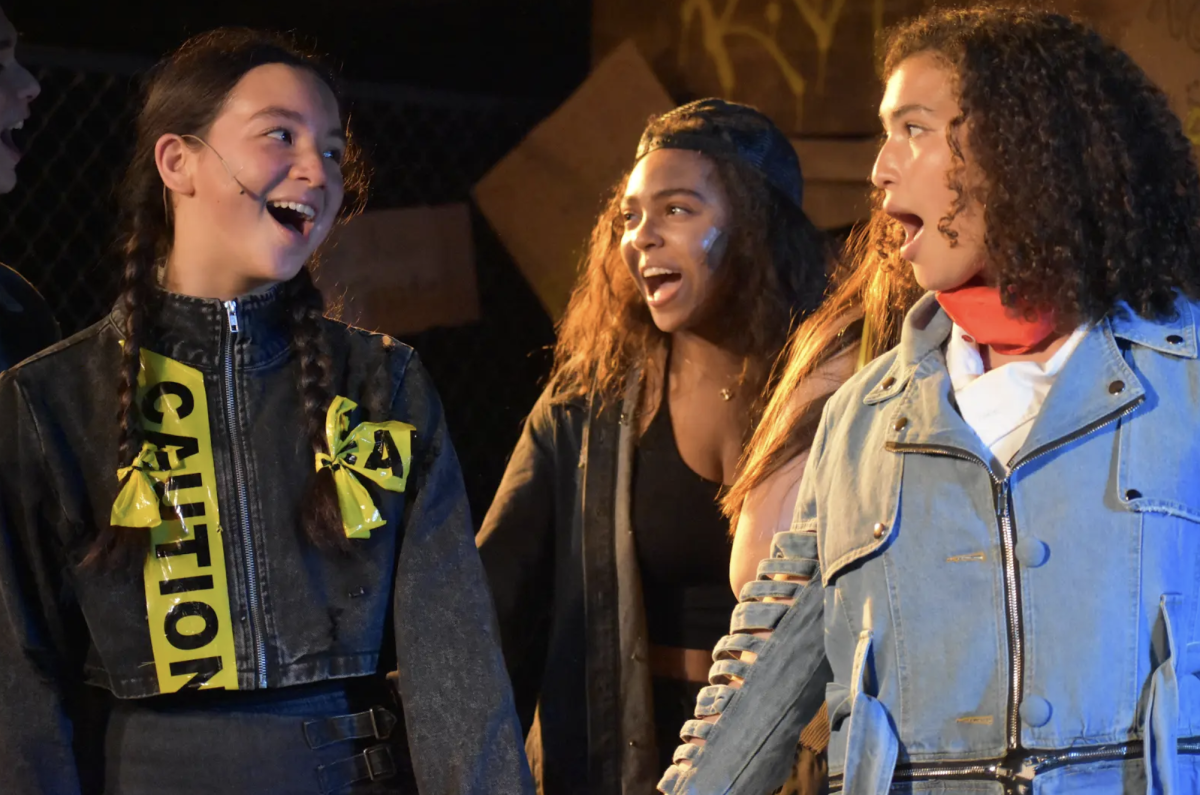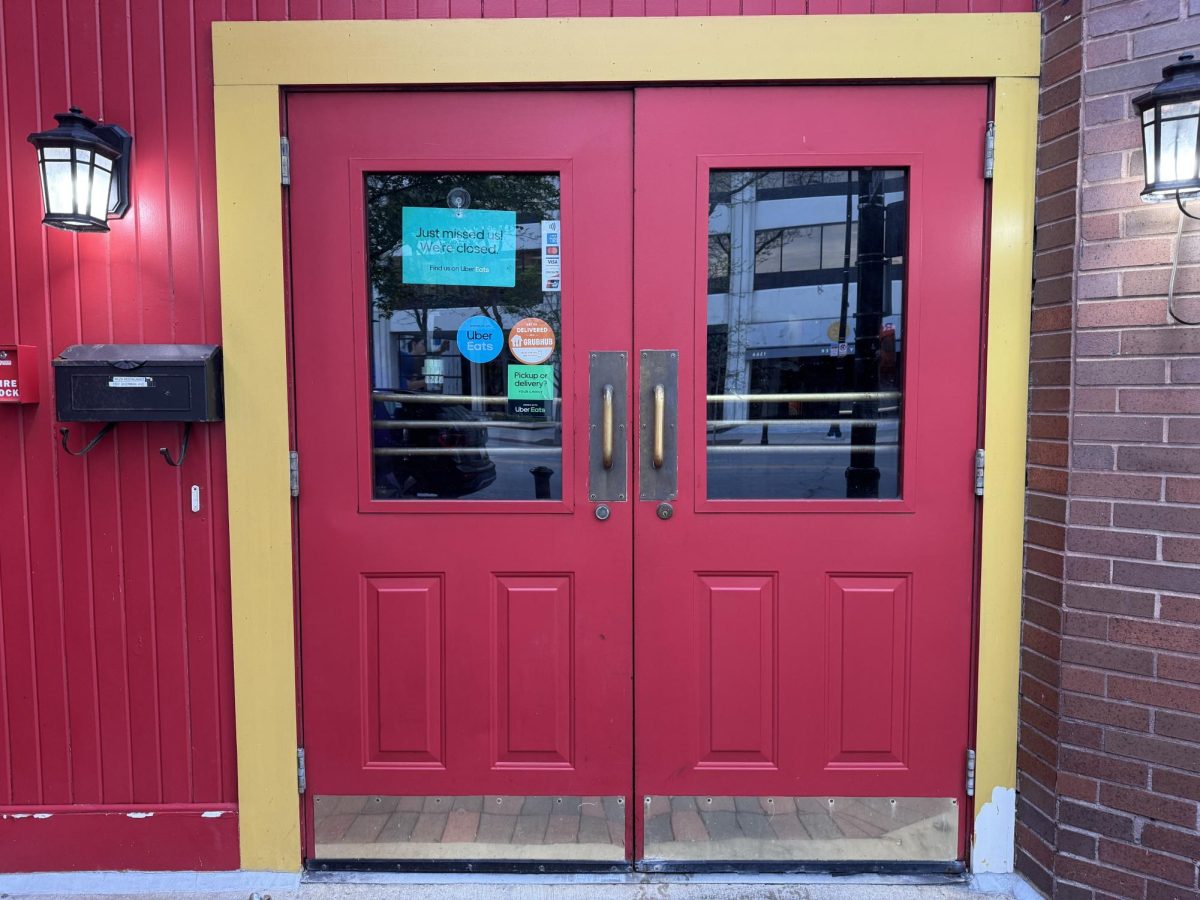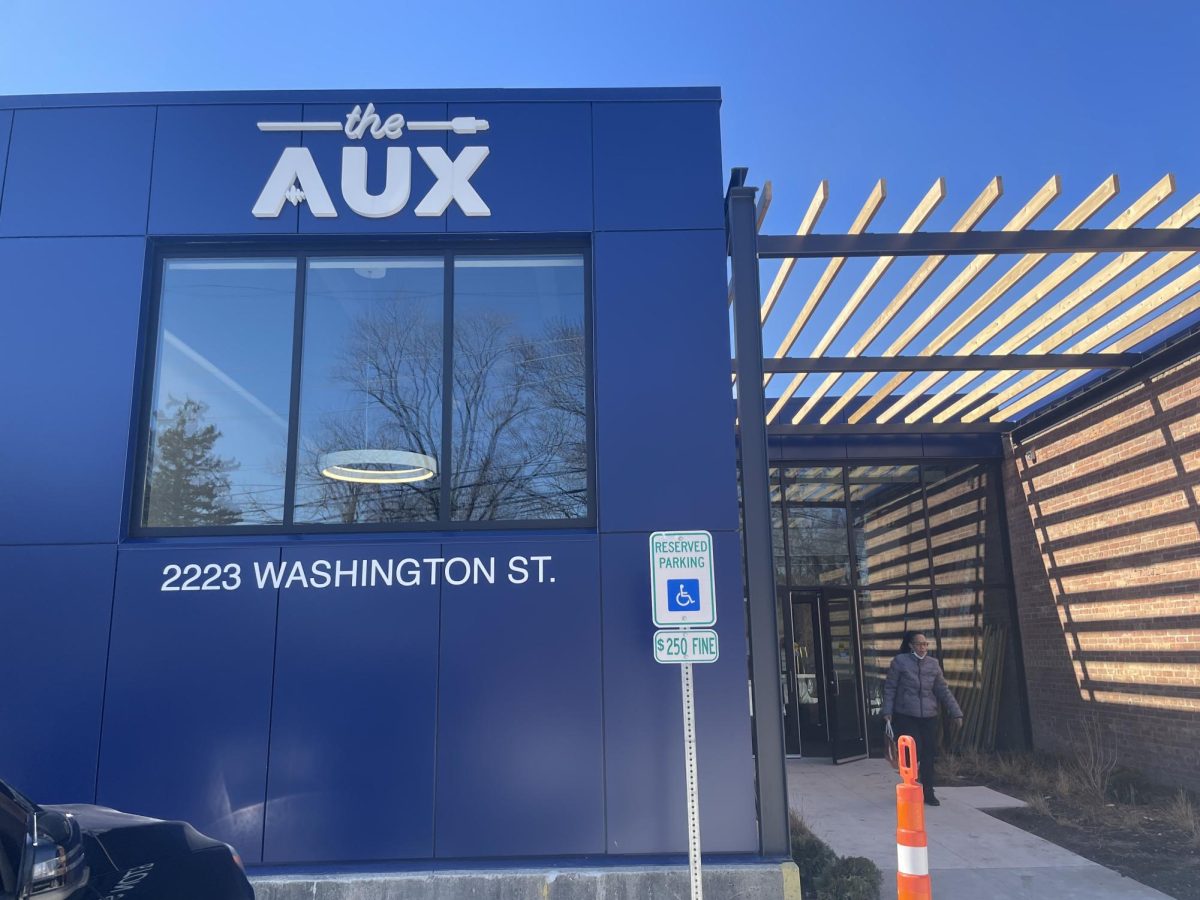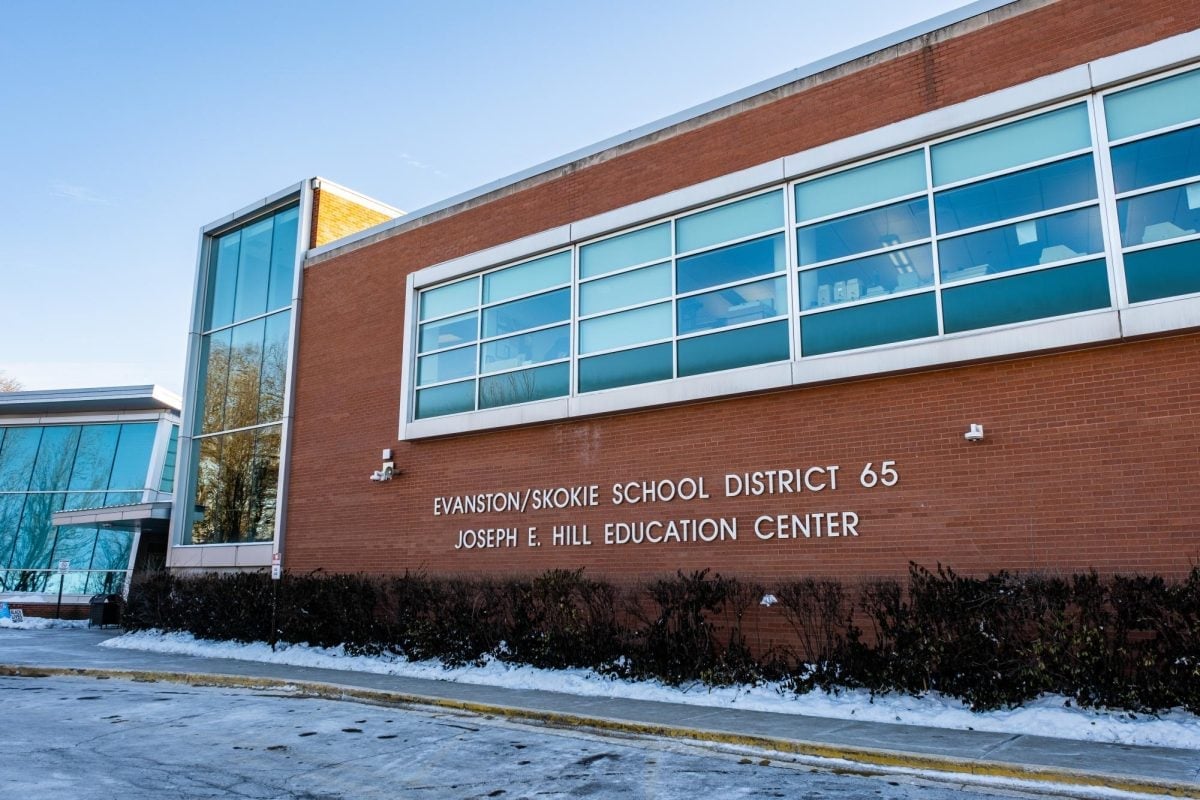Evanston-based art therapy nonprofit Open Studio Project was about one year into its collaboration with Douglas Taylor Elementary School when the organization learned it had lost the $20,000 promised in grant funding from the National Endowment for the Arts.
OSP’s two-year grant was one of many NEA grants terminated by the Trump administration on May 2 and comes after the administration proposed eliminating the agency, which is the largest funder of arts and arts education in the U.S.
For many arts organizations in Evanston, the loss of NEA support could mean canceling projects, pivoting to ask for more donations and struggling to stay afloat.
NEA did not respond to multiple requests for comment by the time of publication.
OSP Executive Director Rob Lentz said the organization will now be unable to complete its work with Douglas Taylor Elementary, which consisted of bringing art programming to third through eighth grade students to promote interest, support socioemotional needs and build community.
“It’s really disheartening because the NEA has always been a champion for every kind of art,” Lentz said. “From huge organizations that do really big, splashy productions to just little local organizations like ours … we see that it makes a real difference in people’s lives, and that’s all we want to do. ”
Another Evanston organization impacted by NEA grant cancellations is ARTSiE, a nonprofit that promotes literacy through arts education programming. The organization applied for multiple grants this year, some of which were funded by the NEA, according to Robyn Hurtig, development and fundraiser manager at ARTSiE.
One of these grants was the Cultural Fund Grant Program, which is partially funded by an NEA grant and distributed annually by the Evanston Arts Council.
ARTSiE was one of the grant’s top applicants, according to Hurtig. In past years, she said, this meant the organization would likely have received all $8,000 it applied for — the maximum amount allowed.
Hurtig said ARTSiE planned to use part of the grant money for a community mural project they are working on. But, due to paused funds from the NEA, even top applicants are expected to receive less than 50% of the funds applied for, according to Chair of the Arts Council Richard Cándida Smith.
While Hurtig said ARTSiE still plans to go forward with the project, the loss of funds means strategizing and finding alternative funding sources to keep it going.
“It’s devastating, because you feel like you’re doing really important work,” Hurtig said. “There’s a huge percentage of kids in our district that are falling below state levels in reading, and our work helps boost that. And now, it’s at risk.”
ARTSiE was one of 32 Evanston arts organizations allotted funding through the Evanston Cultural Fund for 2025. According to Cándida Smith, the council expected to have between $150,000 and $160,000 to distribute through the fund — about half of which typically comes from the NEA. Evanston Cultural Fund distributed $110,000 for 2024, Cándida Smith said.
The Arts Council submitted its proposal for funding this year in January but has yet to hear from the NEA if they have received the funding. Typically, the council would have been notified in the first week of April, Cándida Smith said.
He said the only information the council has received from the NEA was a notice terminating its 2024 grant, telling the Arts Council to wrap up all of the grant’s activities by June 15 and return any unspent money.
But the money was already received and spent, according to Cándida Smith.
The other half of the grant is funded by the Illinois Arts Council and the City of Evanston, Cándida Smith said, and both organizations have increased their financial support over the last few years.
Because of the uncertainty surrounding the NEA funding and the fact that Illinois Arts Council funds have a June distribution deadline, the Arts Council decided to allocate the funds they had, Cándida Smith said. He said the EAC distributed $75,000 to 32 of the about 40 groups who applied, with no organizations receiving the full amount they applied for.
“I think most applicants would have received funding, and you would have had many of them at full levels,” Cándida Smith said. “You would have seen an immeasurable impact on the arts, life and public programming in the City of Evanston this coming year.”
The Evanston Cultural Fund is not the only grant impacted by paused or canceled NEA funds.
On May 3, Evanston arts education nonprofit Art Encounter posted on Instagram that its $28,000 NEA grant for this year had been withdrawn. Art Encounter provides arts programming for students in Chicago Public Schools through hands-on projects and visits to the Chicago Art Institute, some of which is now at risk of cancellation, according to the post.
“It’s just disappointing, and it’s a waste of people’s time and energy,” Art Encounter member Sarah Kaiser said. “But not only that, these kids get their hopes up because the program has been around for a really long time.”
On Feb. 6, the NEA updated its website to announce it would be cutting its Challenge America funding program, which supports arts projects targeting underserved communities. The NEA also announced that all grant applicants must not run programs promoting diversity, equity and inclusion, claiming such programs violate federal antidiscrimination laws.
Some Evanston arts organizations said that while it’s disheartening, the new anti-DEI initiatives in the arts will not change the “ethos” of their organizations.
One such organization is Cerqua Rivera Dance Theatre, a performing arts non-profit in Evanston that has also been impacted by NEA grant cuts. Wilfredo Rivera, the theater’s co-founder and artistic director, said the grant money the organization usually receives only makes up a small amount of their annual budget, and the theatre is not compelled to change its approach to DEI.
“It’s just part of the DNA of the organization that we celebrate and we unpack the complexities of American identity,” Rivera said. “So we will continue to move on our pathway. We have been doing this kind of immersive and inclusive, explorative work about identity, even before it was popular.”
Similarly, Evanston-based classical music organization Crossing Borders Music applied for and received NEA grant funding to support its inclusive chamber music series. According to Crossing Borders co-Executive Director Marschnee Strong, the series would highlight underrepresented voices through different venues in the Chicago area. The NEA grant, though, was withdrawn on May 2, Strong said.
According to an Instagram post from the nonprofit, the NEA told Crossing Borders the funding was “reviewed in light of Trump administration executive orders including anti-DEI, anti-transgender, and/or other executive orders.”
The organization still plans to continue their work to support multicultural communities as much as possible. However, Strong said the organization might need to cut some planned programming due to the loss of NEA funding.
“It’s not just a suppression of our organization and our organization’s voices and our collaborators,” Strong said. “It’s very widespread. And that loss of the storytelling and the passing along of traditions and cultural pride and heritage — it’s really an unfortunate space to see in our society in the year 2025.”
For many Evanston arts nonprofits, the loss of funds feels like a loss of support as well as an added inconvenience.
While other donors and organizations might be willing to step in to help, the increased need for fundraising efforts takes up valuable time, Lentz said.
“It’s a major distraction,” Lentz said. “It takes a lot of staff time. It takes a lot of brain space that I would much rather use conceptualizing programs, and how we’re going to work with students and teachers. But, instead, it’s a lot of paperwork, and it’s just a stultifying process of trying to recapture something that we already had.”
Additionally, with many arts organizations facing similar situations, some — like Rivera — expressed concern that support from corporate and individual donors is finite, especially as some contributors are also prioritizing efforts outside of the arts, such as policymaking and research.
Rivera said this means “celebrating” all contributions, including donations as small as $5, and continuing to grow the donor base the organization focused on during the COVID-19 pandemic.
“Artists are resilient, and we are forward thinkers,” Rivera said. “We’re trying to figure it out and how to build strength in numbers.”
Like Rivera, representatives of many Evanston arts organizations said some comfort lies in the support of the Evanston community and their appreciation of the arts.
“I feel very lucky to be in this Evanston ecosystem, because there’s such a robust network of nonprofits and huge and social service agencies, and there’s a very collegial, collaborative sense to that,” Lentz said. ”But this is really, you know, this is really testing it.”
Email: [email protected]
X: @emilymlichty
Related Stories:
— The race to 500: NU students chase LinkedIn’s magic number
— Spells, occult books and the business of magic in Chicago
— Dave and his kitchen: Dave’s Italian Kitchen serves Evanston for 53 years




















